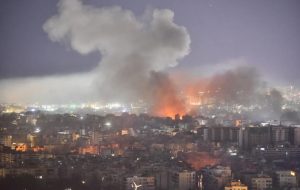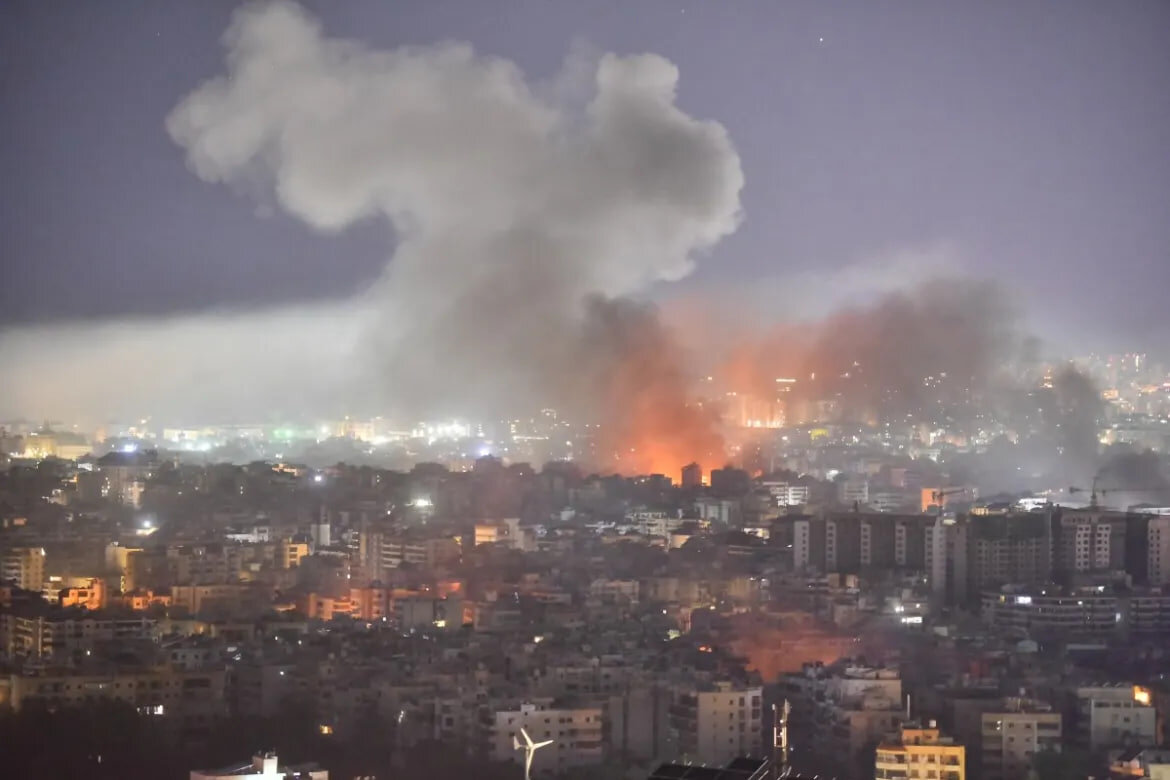Israel conducts savage attacks on Lebanon ahead of ceasefire
The Israeli regime kept up massive bombardment of the Lebanese capital Beirut and other areas in southern Lebanon on Tuesday as Israeli, US and Lebanese officials expressed growing optimism over a ceasefire. Waves of strikes pounded Hezbollah’s south Beirut stronghold after a flurry of Israeli evacuation warnings, in the heaviest raids since Israel’s air campaign escalated.


The Israeli regime kept up massive bombardment of the Lebanese capital Beirut and other areas in southern Lebanon on Tuesday as Israeli, US and Lebanese officials expressed growing optimism over a ceasefire.
Waves of strikes pounded Hezbollah’s south Beirut stronghold after a flurry of Israeli evacuation warnings, in the heaviest raids since Israel’s air campaign escalated.
Lebanon’s state-run National News Agency said that “a belt of fire has encircled (the city’s) southern suburbs” as raids targeted Burj al-Barajneh, Haret Hreik, and Hadath.
The NNA reported that another strike in the central “Nweiri area in Beirut destroyed a four-story building housing displaced people”. It killed three people and injured 26, the health ministry said.
Israeli forces also threatened residents in areas of Lebanon’s Tyre and Sidon, saying they would attack there in the “near future”.
Pro-resistance Lebanese lawmaker Amin Sherri told reporters Tuesday that Israel wanted to take revenge on the Lebanese people, particularly the group’s supporters, before a possible ceasefire.
“The Israeli enemy… seeks revenge on supporters of the resistance and all Lebanese,” Sherri told reporters at the site of a deadly Israeli strike on the Lebanese capital.
The escalation in attacks comes as officials said they were optimistic a ceasefire deal was within reach.
US Secretary of State Antony Blinken on Tuesday said efforts to secure a ceasefire in Lebanon were “in the final stages.”
“We’re not there yet, but I believe we are in the final stages,” Blinken told reporters after a meeting with G7 foreign ministers in Italy.
He said that a ceasefire in Lebanon can potentially help end the war in Gaza.
Meantime, Israel’s security cabinet on Tuesday afternoon discussed a ceasefire plan proposed by the United States and France, who have led the efforts to broker a ceasefire.
US National Security Council spokesman John Kirby said Monday that talks had reached a “point where we’re close.”
G7 foreign ministers called Tuesday for an “immediate ceasefire” in Lebanon, saying, “Now is the time to conclude a diplomatic settlement.”
The EU foreign policy chief Josep Borrell said Israel had “no more excuses” to refuse a deal. And the American news outlet Axios reported that the draft agreement included a 60-day transition period.
During the said time, Israeli forces would withdraw, the Lebanese army would redeploy near the border and Hezbollah would move its heavy weapons north of the Litani River, Axios said.
A US-led committee would oversee implementation, with provisions allowing Israel to act against imminent threats if Lebanese forces failed to intervene.
Israeli media have reported that Prime Minister Benjamin Netanyahu will likely endorse the US’s ceasefire proposal.
The war in Lebanon followed nearly a year of limited cross-border exchanges of fire betweeny israeli forces and Hezbollah.
The Lebanese group said it was acting in support of the resistance in Gaza.
Lebanon says nearly 3,800 people have been killed in the country since October 2023, most of them in the past several weeks.
The initial exchanges forced tens of thousands of Israelis from their homes.
